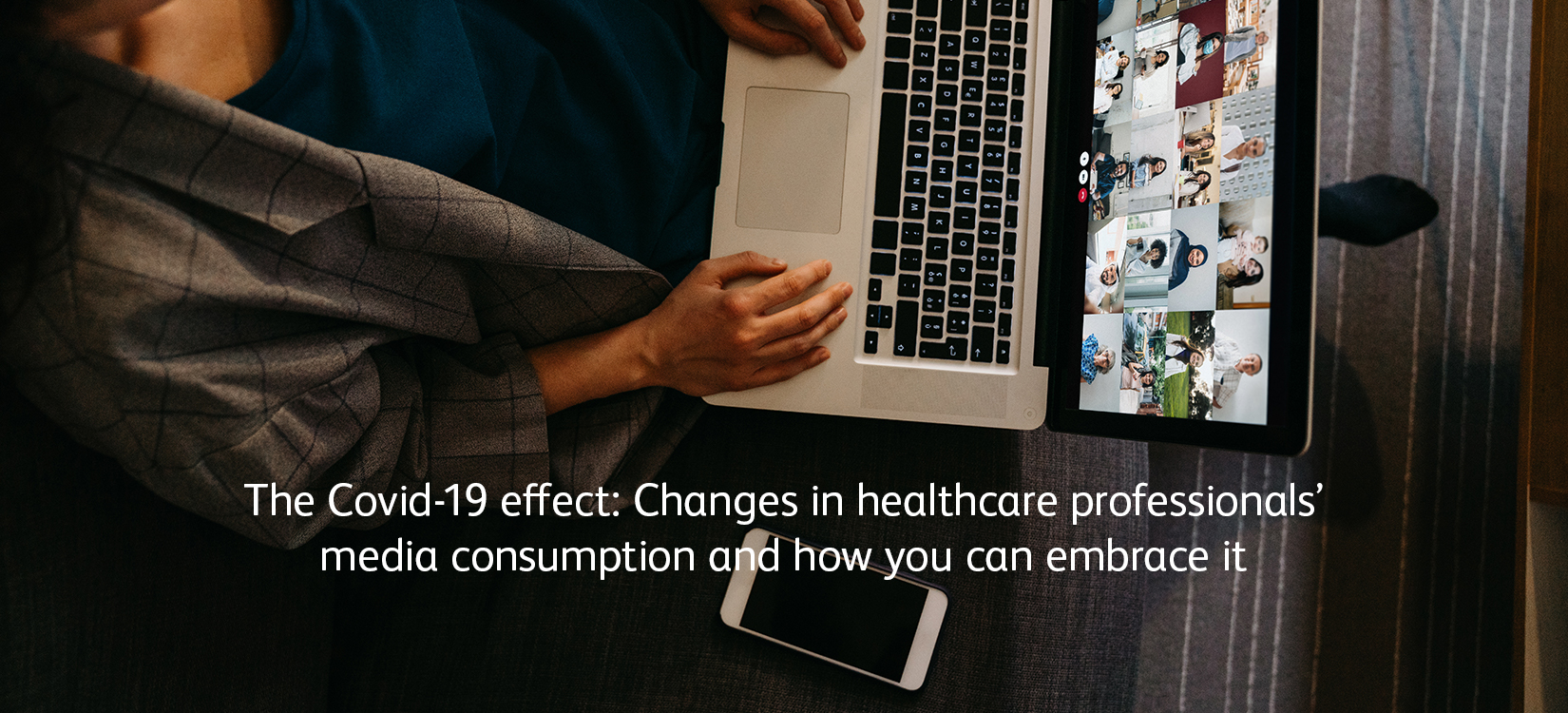The Covid-19 effect: Changes in healthcare professionals’ media consumption and how you can embrace it
Covid-19 pandemic has major impact on healthcare professionals’ media consumption which industry must embrace, reveals new report.

The global Covid-19 pandemic has had a major effect on healthcare professionals’ media and educational consumption and industry must look at ways to embrace these changes for the future, according to a report published today.
The report, published by Cogora, highlights the impact the global crisis has had on those working across primary and secondary care and how the new demands of their roles have triggered a shift in the way they consume digital content and embrace remote events.
Based on its own analysis of its audience of around 220,000 healthcare professionals, Cogora found that GPs, practice managers and practice nurses have had to adapt their jobs and reorganise their practices, moving to triage-first models and implementing remote consultations.
Community nurses have been working on the frontline whilst community pharmacists have faced a massive increase in their workload as they quickly became the first port of call for patients.
With routine capacity in hospitals greatly reduced to focus on coronavirus emergency care, hospital consultants have had to decide which patients to prioritise with their limited resources, whilst their pharmacy colleagues have had to manage issues with medication supplies.
All this has resulted in a greater demand to access information and guidance as it emerges and the need for a reliable and trusted source to deliver it, according to the report, which Cogora’s seven media brands have quickly adapted to.
Amongst the changes in media consumption are the need for specific advice on more specialist medical issues, help in debunking clinical myths often written about in the consumer media, seeking quick guidance on remote working and wanting to read content that praises their profession.
In addition, healthcare professionals have embraced virtual events more than ever before, with 48% of HCPs surveyed by Cogora saying they are confident with using new communication platforms.
Remote meetings have proven to be an efficient alternative to face-to-face advisory boards and virtual webinars have proven to be hugely popular, offering more globalised audiences, a greater pool of key opinion leaders and lower costs to run, according to the report.
“Challenges for our audiences translate into opportunities for our clients,” it says. “By recognising and embracing the interests of healthcare professionals, our clients can position themselves to reach out to them in interesting new ways.”
The full report can be accessed here: The Covid-19 effect report